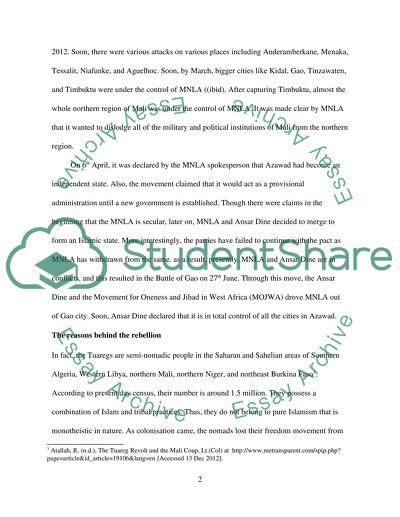Cite this document
(“Should the new republic called Azawadi be recognized as an independent Essay”, n.d.)
Should the new republic called Azawadi be recognized as an independent Essay. Retrieved from https://studentshare.org/law/1403138-public-international-law
Should the new republic called Azawadi be recognized as an independent Essay. Retrieved from https://studentshare.org/law/1403138-public-international-law
(Should the New Republic Called Azawadi Be Recognized As an Independent Essay)
Should the New Republic Called Azawadi Be Recognized As an Independent Essay. https://studentshare.org/law/1403138-public-international-law.
Should the New Republic Called Azawadi Be Recognized As an Independent Essay. https://studentshare.org/law/1403138-public-international-law.
“Should the New Republic Called Azawadi Be Recognized As an Independent Essay”, n.d. https://studentshare.org/law/1403138-public-international-law.


